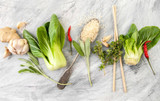In the last few years, Fleur de Sel has gained a certain reputation amongst food lovers. Very white, with fine, snow-like crystals and a very slight hint of violets, it enhances meals by bringing out the taste of even the finest dishes. Only a pinch should be used on raw or cooked food.
Fleur de Sel is renowned for being an exceptional salt, a true gift from nature. In French, the name translates as "flower of salt." Certain weather conditions must be met for it to form on the surface of the marshes: dry, sunny weather with an easterly wind.
Fleur de Sel is hand-harvested in the Guérande salt marshes, during very dry weather, using a "lousse", a traditional tool resembling a rake used to delicately skim the Fleur de Sel from the surface of the water. Its crystals are light, fine and flaky. This is why the salt workers must harvest it quickly after it has formed on the surface of the water to preserve all its qualities. The very special weather conditions and the small quantity produced make it a rare and much sought-after product.
Fleur de Sel has a residual moisture content, up to 10%, which means that it melts slower when sprinkled on dishes. Hence fleur de Sel is appreciated as much for its complex mineral flavours, as it is for its crunchy texture.
Fleur de Sel is the extra virgin olive oil of the salt world. Cooking with it could be seen as wasteful - it is a luxurious finishing salt.
Fleur De Sel De Guérande Variety
There are different varieties of Fleur de Sel available. Honest to Goodness Fleur de Sel is of the Guérande variety, the most celebrated variety of fleur de Sel, having obtained protected geographical status in France. It is harvested off the coast of Brittany in salt marshes or 'marais salants' stretching 2000 hectares between the Loire and Vilaine rivers.
Our supplier was born following a collective movement of salt workers in the 1970s, to protect their territory. Today, nearly 220 salt workers share their harvests each year and guarantee a quality product. Over the past 30 years, the cooperative has grown and Guérande sea salt has become a worldwide reference for regional salts.
Our suppliers philosophy is based on the respect for the product, a precious natural resource of undisputed quality, which the cooperative strives to preserve through certifications and that aligns perfectly with Honest to Goodness values.
What Does Fleur De Sel Go Well With?
Fleur de Sel, with its light and nuanced profile, serves as the perfect finishing touch to a myriad of dishes. From fresh salads to decadent chocolates, a pinch of Fleur de Sel elevates flavours, creating a culinary masterpiece.
Coarse and wet, Fleur de Sel de Guérande retains its crisp texture better than other salts when sprinkled over dishes such as grilled sardines, heirloom tomatoes and steak. In Brittany, Fleur de Sel is commonly sprinkled over the regional speciality, buckwheat crêpes, known as 'galettes'.
Aside from its big mineral flavours, fleur de Sel de Guérande is also renowned for its slightly sweet finish, which has made it a popular addition to chocolate, caramel popcorn and macarons.
Chefs worldwide cherish Fleur de Sel for its ability to enhance a wide array of dishes. Whether sprinkled on grilled vegetables or used as a final flourish on a seared steak, its delicate touch is unmatched. Fleur de Sel also works well when blended with other flavours, bringing an unusual twist to some classic dishes.
Looking for some inspiration? Sweet or savoury, we got you covered!
Check out our Fleur de Sel Caramels and BBQ spare ribs marinated in Celtic Salt with a maple syrup sauce recipes.
Exploring The Link With Celtic Sea Salt
While Fleur de Sel and Celtic sea salt differ in their characteristics, they share a common heritage rooted in the coastal regions of France.
Celtic sea salt is extracted from the same saline marshlands in Le Guérande, just lower down the salt pan. These salt ponds are lined with natural clay and produce salts that appear grey in colour. The clay contributes valuable minerals and nutrients, that add to both the nutritional value and flavour of the salts.
Similar to the process for Fleur de Sel, the seawater in the salt pans is exposed to sunlight and wind, promoting the natural evaporation of water. This concentration process gradually increases the salt content in the remaining liquid. As the seawater continues to evaporate, salt crystals begin to form in the salt ponds. These crystals are typically coarser and denser as Celtic sea salt is not specifically harvested from the surface like Fleur de Sel.
Both Fleur de Sel and Celtic salt are products of time-honoured traditions, passed down through generations.
Honest To Goodness Fleur De Sel
An undeniable delicacy from the salt marshes, Fleur de Sel is a natural salt with unique flavouring properties.
Explore the magic of Fleur de Sel in your own kitchen. Experiment with its application in both savoury and sweet creations, and let the subtle crunch of these delicate crystals bring a touch of originality and elevate your culinary creations!






![Introducing Yarra Valley Tea [Supplier Spotlight] Introducing Yarra Valley Tea [Supplier Spotlight]](https://cdn11.bigcommerce.com/s-dis4vxtxtc/images/stencil/160w/uploaded_images/blog-thumbnail-yarra-valley.jpg)
![Introducing Matcha Maiden [Supplier Spotlight] Introducing Matcha Maiden [Supplier Spotlight]](https://cdn11.bigcommerce.com/s-dis4vxtxtc/images/stencil/160w/uploaded_images/blog-thumb-matcha-maiden.jpg)

![Introducing Fangst [Supplier Spotlight] Introducing Fangst [Supplier Spotlight]](https://cdn11.bigcommerce.com/s-dis4vxtxtc/images/stencil/160w/uploaded_images/blog-thumbnail-fangst.jpg)